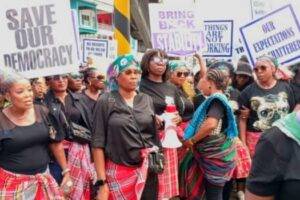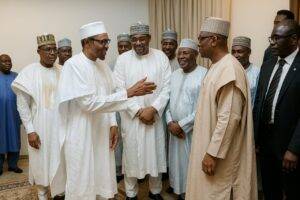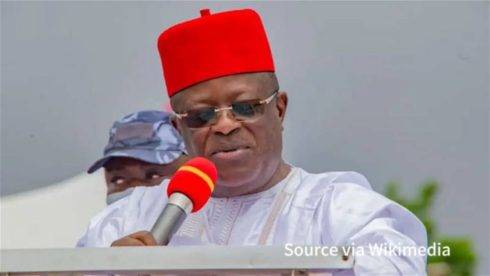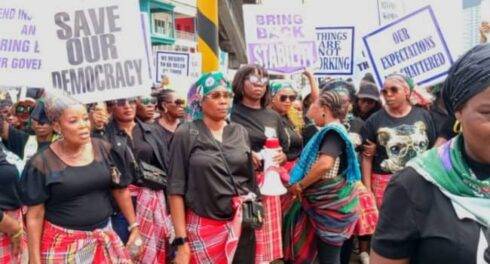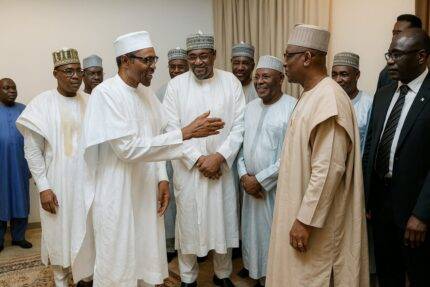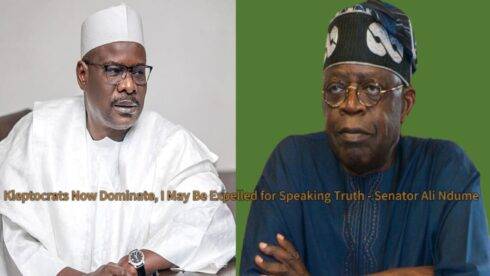In a recent announcement, the Minister of Works, David Umahi, unveiled the Federal Government’s plan to construct the Lagos-Calabar coastal highway at a cost of N4 billion per kilometer. This statement comes amidst debates over the project’s estimated cost, with former Vice President Atiku Abubakar claiming it would amount to N8 billion per kilometer. Minister David Umahi vehemently refuted this, emphasizing that the actual cost per kilometer is half of what was previously asserted.
Minister David Umahi clarified that the total cost for the entire project would amount to N2.8 trillion, significantly lower than the speculated figures. He highlighted key differences between the proposed design and the previous one, citing modifications such as the inclusion of a train track and expanded lane capacity. The coastal road project, according to Umahi, will feature 10 lanes and substantial shoulders, enhancing its functionality and durability.
Moreover, Minister David Umahi presented a detailed breakdown of the cost comparison between the two designs, emphasizing the efficiency and cost-effectiveness of the government’s approach. By employing concrete pavement suited for the coastal terrain, the projected cost per kilometer stands at N4 billion, contrary to Atiku Abubakar’s estimations. Minister Umahi’s clarification aims to dispel misconceptions and ensure transparency regarding the ambitious infrastructure project.
Debunking Misconceptions: Understanding the Cost Breakdown
Minister David Umahi’s comprehensive breakdown of the Lagos-Calabar coastal highway project sheds light on the intricacies of infrastructure development and budgeting. Contrary to previous claims, Umahi’s analysis reveals that the government’s proposed cost per kilometer is grounded in meticulous planning and cost-effective strategies.
By comparing the current design with the previous one, Minister David Umahi elucidates the rationale behind the project’s estimated cost, emphasizing factors such as terrain suitability and material selection. The inclusion of a train track and expanded lane capacity underscores the project’s multifaceted objectives, aiming to enhance connectivity and facilitate economic growth along the coastal region.
Furthermore, Minister David Umahi’s emphasis on transparency and accountability in budget allocation underscores the government’s commitment to prudent resource management. The detailed cost breakdown serves to allay concerns and foster public confidence in the feasibility and sustainability of the infrastructure projec
Procurement Process Explained By Minister David Umahi
Responding to allegations of irregular procurement, Minister David Umahi clarified that the contract for the Lagos-Calabar highway was awarded on a counter-funding basis, not through Public-Private Partnership (PPP) as initially indicated. Contrary to earlier statements attributing the project to PPP and Hitech Construction’s involvement, Umahi stated that the ministry engaged the company based on their expertise, bypassing a public bidding process.
While asserting compliance with procurement regulations, Minister David Umahi likened the ministry’s approach to selecting contractors to its previous engagement with Julius Berger for specialized projects. He emphasized the role of due diligence and oversight mechanisms in ensuring accountability and fair competition. Additionally, Minister David Umahi hinted at a forthcoming negotiation phase to determine the extent of counterpart funding required, underscoring the government’s commitment to maximizing value for taxpayers’ money.
Minister David Umahi’s comprehensive explanation offers clarity and insight into the intricacies of the Lagos-Calabar coastal highway project, addressing concerns raised by stakeholders. By dispelling misconceptions surrounding costs and procurement, the minister reaffirmed the government’s dedication to infrastructure development and fiscal responsibility. As the project progresses, continued transparency and adherence to due process will be crucial in fostering public trust and ensuring the successful realization of this vital transportation corridor.
Looking Ahead: Implications and Future Prospects
As the Federal Government presses forward with plans to construct the Lagos-Calabar coastal highway, Minister David Umahi’s clarification paves the way for informed discourse and strategic decision-making. The project, touted as a catalyst for regional development and economic revitalization, holds immense potential to transform transportation infrastructure and stimulate investment in the coastal belt.
However, challenges lie ahead, including the need for effective project management, environmental sustainability, and stakeholder engagement. As construction commences, stakeholders must remain vigilant in monitoring progress and ensuring adherence to quality standards and timelines.
Ultimately, the success of the Lagos-Calabar coastal highway project hinges on collaborative efforts between government agencies, private sector partners, and local communities. By fostering synergy and leveraging innovative solutions, Nigeria can unlock the full socio-economic benefits of this ambitious endeavor, ushering in a new era of prosperity and connectivity along its coastal corridor.
Discover more from OGM News NG
Subscribe to get the latest posts sent to your email.

